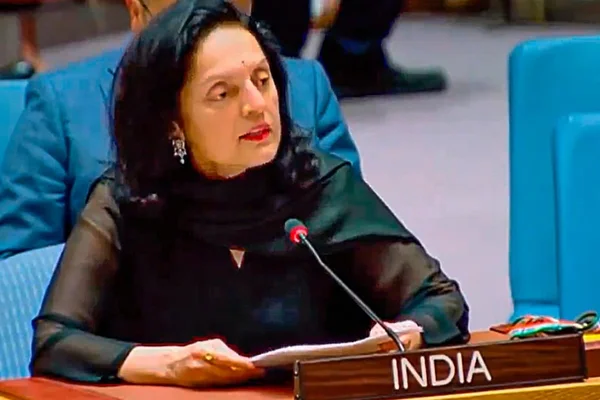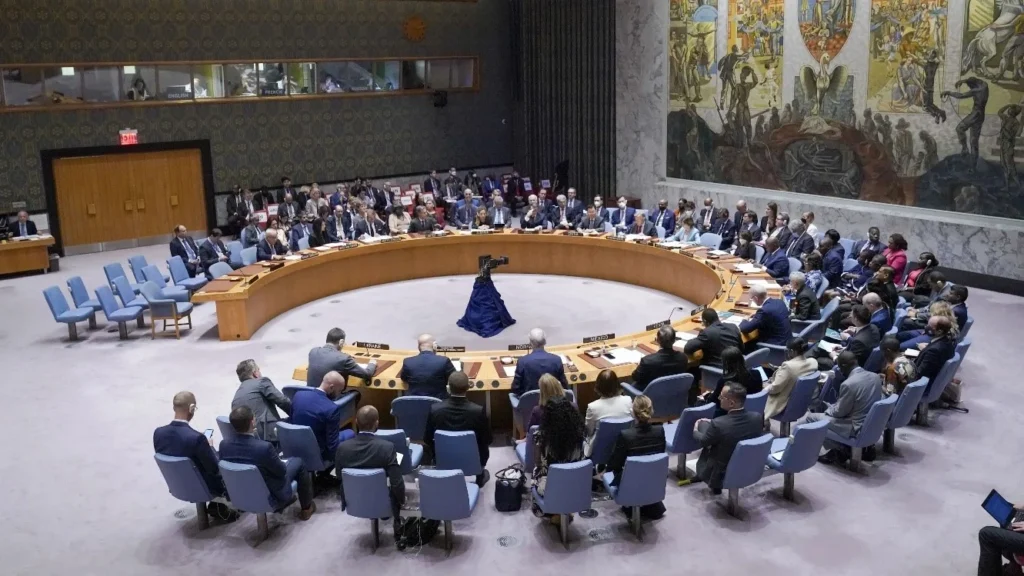India recently presented a detailed model on behalf of the G4 nations for United Nations Security Council (UNSC) reforms.
Key Highlights on India’s Model for UNSC Reforms:
- India participated in the Inter-governmental Negotiations on Security Council reform (IGN) and presented a model of UNSC Reforms on behalf of G4 nations.
- This includes new permanent members elected democratically by the General Assembly and displays flexibility on the veto issue.
- India’s Permanent Representative to the UN cited the need for such reforms to achieve concrete progress, as UN would soon reach the 80th year of its foundation.
- The ‘G4 model’ was presented on behalf of Brazil, Germany, Japan and India for debate, dialogue and finally negotiations.
- The proposals elicited strong support from wider UN members and highlights the geo-political realities of the modern era and a new century over the 1945 era.
- It proposes the Security Council’s membership should increase from the current 15 to 25-26, by adding six permanent and four or five non-permanent members.
- Among the new permanent members, two each are proposed to be from African and Asia Pacific states, one from Latin American & Caribbean states; and one from Western European and Other states.
- It does not specify which member states would occupy the new permanent seats, as it shall be made by the General Assembly in a democratic and inclusive election.
- The model notes that the current composition is under-represented and un-represented in terms of key regions in both categories of membership.
- It stressed that the Council’s inability to address critical conflicts and maintain international peace and security underscores the urgent need for reform.
- This would only exacerbate the current imbalances in composition and render it ill-equipped to address today’s international challenges.
- In the permanent category of UNSC membership, the current system does a grave injustice to the aspirations of developing countries for equality.
- India offered flexibility on the veto, an issue that has been a contentious topic among member states in terms of very slow reform process over the years.
- As a principle, new permanent members shall have the same responsibilities and obligations, but shall not exercise veto until a decision has been taken during a review.
- The five permanent members (P5) include China, France, Russia, the U.K. and the U.S., which hold veto powers.
About G4 Nations:
- The G4 is a coalition of four influential countries, namely India, Japan, Brazil & Germany that united with the aim of reforming the UNSC.
- They are also known as Group of four countries, which emerged in 2005 as a response to need for more inclusive and representative decision-making within the UN.
- It emphasized on stringent reforms, particularly in the Security Council, which plays a crucial role in global peace and security.
- These countries aspire to become permanent members of the UNSC, currently held by P5 countries with Veto power.
- The G4 Ministerial Summit was held in 2023 stated that multilateralism is under significant strain due to multiple and complex geo-political crises.
- It highlighted the UN Security Council’s inability to effectively and timely address contemporary global challenges reinforces the urgent need for its comprehensive reform.
- It emphasized the renewed momentum to advance the discussions on this critical and urgent issue and need to enhance role of all members (permanent and non-permanent) of UNSC.
- They agreed on the need to enhance the participation of developing countries and reaffirmed support for Common African Position (CAP) in UNSC.
Ref:Source
| UPSC IAS Preparation Resources | |
| Current Affairs Analysis | Topperspedia |
| GS Shots | Simply Explained |
| Daily Flash Cards | Daily Quiz |



